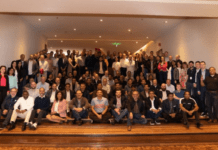As most professionals will confirm, discussions on political and social issues at the workplace are largely discouraged. It is like an unwritten rule or a policy that team members are expected to refrain from debating on controversial issues during work or even during water cooler conversations.
Organisations think it is right to discourage unnecessary debates and discussions that are not related to their line of work of the company and may create disharmony amongst the people.
However, that doesn’t mean such debates do not take place at all. They do. As per the India Workforce Hopes and Fears Survey 2022, by PwC, 75 per cent of employees in India either frequently or sometimes, do have discussions on political and social issues.
Of those who said they do not have such conversations at the workplace, 32 per cent admitted to their company discouraging such conversations.
Interestingly, the report also mentions that a higher proportion of employees believe that debates and discussion amongst employees regarding political or social issues can enhance inclusion at the workplace!
“Healthy conversations and discussions on social issues do help enhance inclusion”
Sushil Baveja, senior HR leader
So how can an organisation have such discussions at the workplace even while ensuring that it does not blow out of hand?
When it comes to social issues, there are certain topics or discussions that can get quite controversial and result in heartburn for some people. Topics related to LGBTQ inclusion at the workplace, period leaves, mental health and even paternity or maternity leaves and more. In such discussions, people tend to have certain polarised views and opinions. For some, these issues are very close to their heart and they are quite passionate about them.
“Companies that do take a stand on such social issues, which impact the workplace are very clear about what they want. However, employees may have different opinions with regard to that issue,” admits Rajorshi Ganguli, group HR head, Alkem Laboratories.
People may be polarised when it comes to hiring people from diverse backgrounds. Some may believe that the organisation is giving more preference to women in certain roles simply to achieve their diversity goals. “I think this is what sensitisation sessions are meant for — to ensure that people are more educated about such issues in the organisation,” says the senior HR leader.
In fact, when it comes to social issues, lack of knowledge about a particular subject can lead to conflicts or disharmony amongst employees. Therefore, through sensitisation sessions, companies try to educate employees on the subject to ensure there is no such heartburn amongst employees.
“Sensitisation sessions are meant to ensure that people are more educated about social issues in the organisation”
A senior HR leader from real estate sector
While companies may have formal platforms to discuss social issues, even on such platforms, differentiated opinions do arise. To control such discussions, such conversations need to be highly moderated. “The leaders who participate in such conversations are advised to respect each other’s opinions and differences,” the senior HR leader says.
However, as the PwC report says, debating and discussing such social issues enhances inclusion. In some ways, it can certainly help because people will get an opportunity to be exposed to differentiated opinions and different perspectives.
“Such healthy conversations and discussions do help enhance inclusion,’ agrees Sushil Baveja, senior HR leader.
Some HR leaders believe that just having conversations and discussions around such topics is not enough. The change should reflect in actions and concrete steps. Such social biases come from the very roots of our society, and this cannot be eradicated easily. It is rather a long journey.
As per HR leaders, discussing political issues is very different from having conversations around social issues. In fact, Baveja believes that such discussions should be discouraged if they are not related to one’s line of business. “People do have such discussions, but they generally restrict it to the cafeteria conversations and do not bring it to their workstations,’ states Baveja.
A complete ban on political debates altogether cannot be possible, believe HR leaders, since they take place at an informal level. “We cannot stop people from having such discussions nor do we have any control over them,” says Ganguli.
“Companies that do take a stand on such social issues, which impact the workplace are very clear about what they want. However, employees may have different opinions with regard to that issue”
Rajorshi Ganguli, group HR head, Alkem Laboratories
“I believe, informal political debates do tend to get heated at times and people may even end up getting hurt. However, these are temporary effects that are resolved with time,” says the senior HR leader.
Sensitisation efforts along with leadership support can make it possible for controversial social topics to be amicably discussed at the workplace. Some new-age companies have even come forward to introduce policies around pink leaves or period leaves, which is a healthy sign and speaks volumes of the way India Inc’s work culture is shaping up.
Value our content... contribute towards our growth. Even a small contribution a month would be of great help for us.
Since eight years, we have been serving the industry through daily news and stories. Our content is free for all and we plan to keep it that way.
Support HRKatha. Pay Here (All it takes is a minute)




































